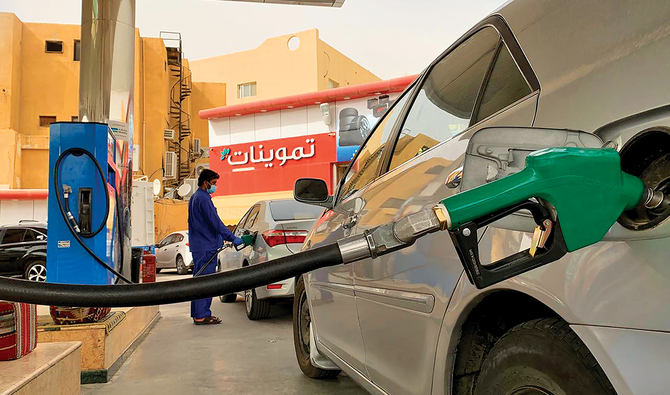DUBAI: The full scale of the economic shock from the coronavirus pandemic has been revealed in radical measures taken by Saudi authorities to cut allowances, reduce project spending and triple value added tax in what economists called an “immediate overhaul” of the Kingdom’s finances.
In announcing the measures Finance Minister Mohammed Al-Jadaan said: “These are the priorities: The healthcare of people and the livelihood of people. We want to make sure that we maintain our fiscal strength so that as the economy gets out of the lockdown, we are able to support the economy. What we have seen from the announced measures are the ones that the team — both economists and other experts — thought would be the least damaging to the economy and the fiscal strength of the country.”
Monica Malik, chief economist at Abu Dhabi Commercial Bank, said: “The reforms are positive from a fiscal side as greater adjustment is essential.”
Mohamed Abu Basha, head of macroeconomic analysis at EFG Hermes, said: “These are very bold measures necessitated by the sharp deterioration in the government’s fiscal balances.”
The Tadawul index fell 1.18 percent on the announcement, still some way above the lows at the height of the oil price war last month. The price of sovereign bonds rose on the news.
The steps taken will save around $26 billion, the Saudi minister said, with the proceeds being re-allocated to healthcare and aid for businesses during the pandemic. He added that the SR220 billion ($58.7 billion) already indicated to bridge the deficit this year would still be sufficient.
The Kingdom’s finances have also been hit by the dramatic reduction in oil revenue as a result of falling global demand during the pandemic.
“Despite all that is taking place around the world, we are committed to continue our reform, we are committed to ensuring that we have the fiscal strength and maintain our reserves, maintain our fiscal buffers. We are not cutting spending, we are reallocating spending,” Al-Jadaan said in the transcript of a phone call with Bloomberg.
He acknowledged that, with consumer spending at low levels because of the lockdowns in the Kingdom, the VAT increase would not raise significant revenue immediately. “As we get out of this, the government will be here to support the economy, support the private sector to ensure that they are not out of business during this period.”
John Sfakianakis, a Gulf expert at Cambridge University, said that tripling VAT would test the limits of the balance between revenues and consumption as the economy “dives into a deep recession.”
The surprise financial package also included measures to remove the SR1,000 a month cost of living allowance for government employees, which was a temporary measure.
Some of the programs in the Vision 2030 reform plan — to diversify the economy away from oil dependency — will also be affected by the spending reviews underway. But the major ones, like giga projects NEOM and the Red Sea Development, are continuing. “It may not be as fast as it used to be, but they are continuing,” the minister added.
He also announced a review of salary scales in “new government organizations” that have been created with a view to narrowing the gap with traditional civil service salaries.
Mazen Al-Sudairi, head of research at Riyadh-based Al-Rajhi Capital, said it was too early to tell what the effect of the VAT increase would be on inflation levels, but that the rise “might be here to stay.”
Tarek Fadlallah, chief executive of Nomura Asset Management in the Middle East, said: “The subtle approach to diversifying the Saudi economy and raising non-oil revenues has been too slow. The authorities have accepted the need to induce a painful and immediate overhaul of the economy in the hope of longer term gains.”


























